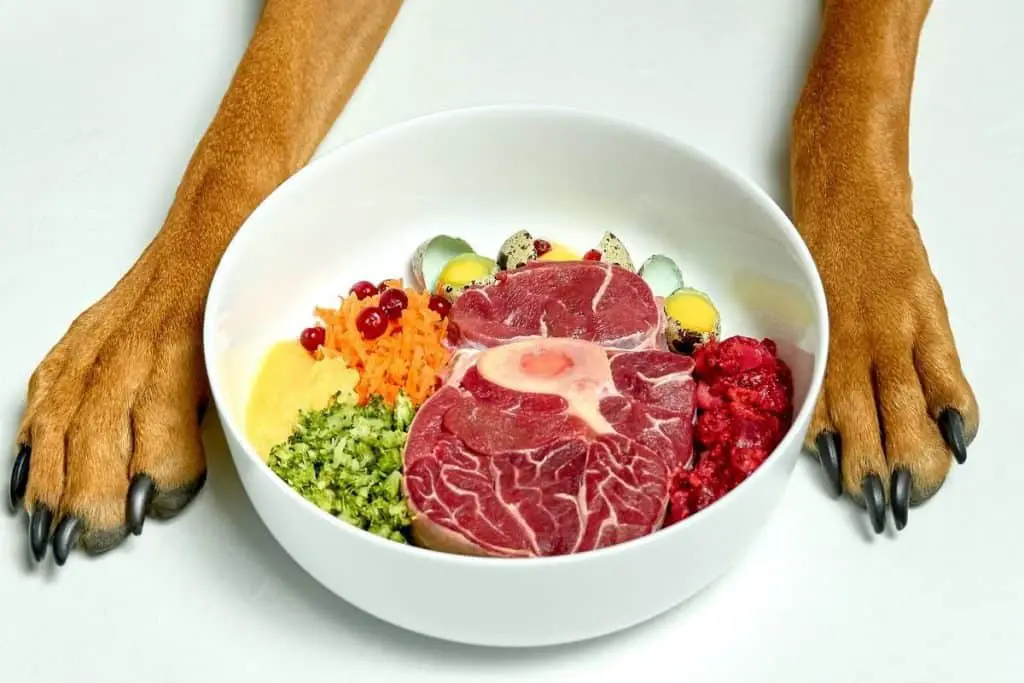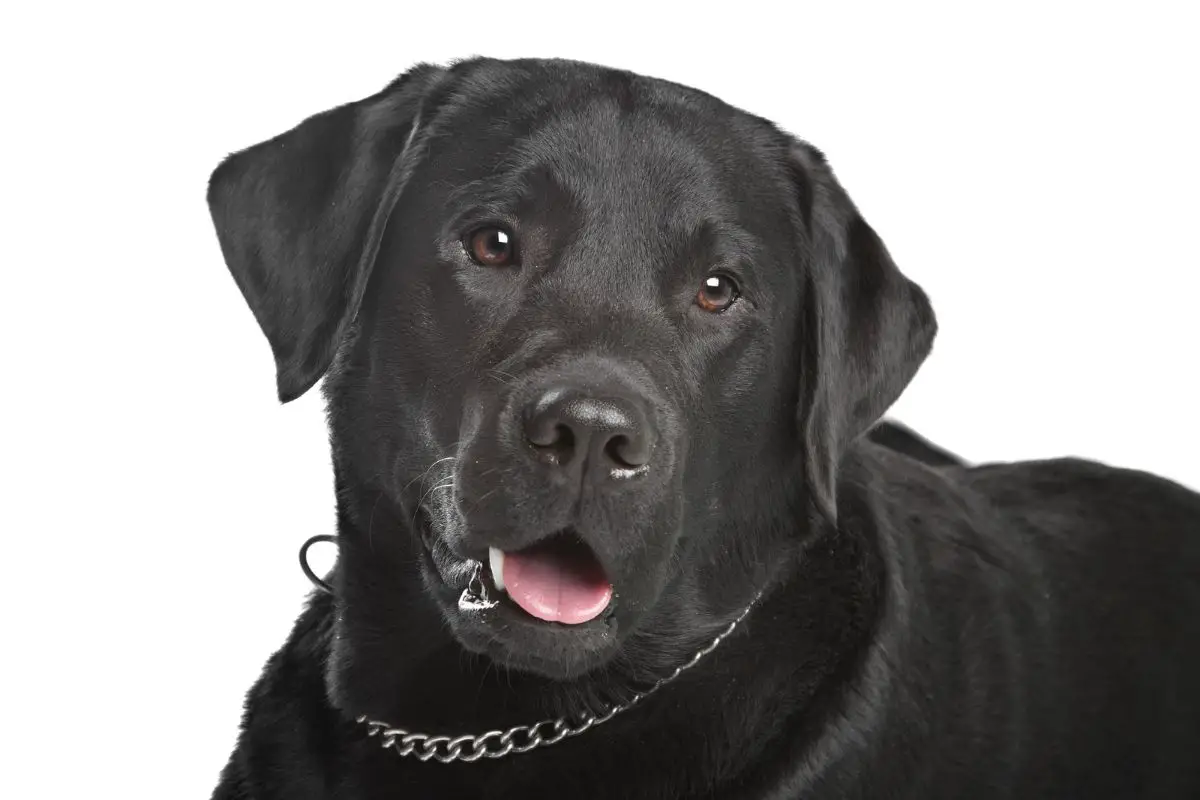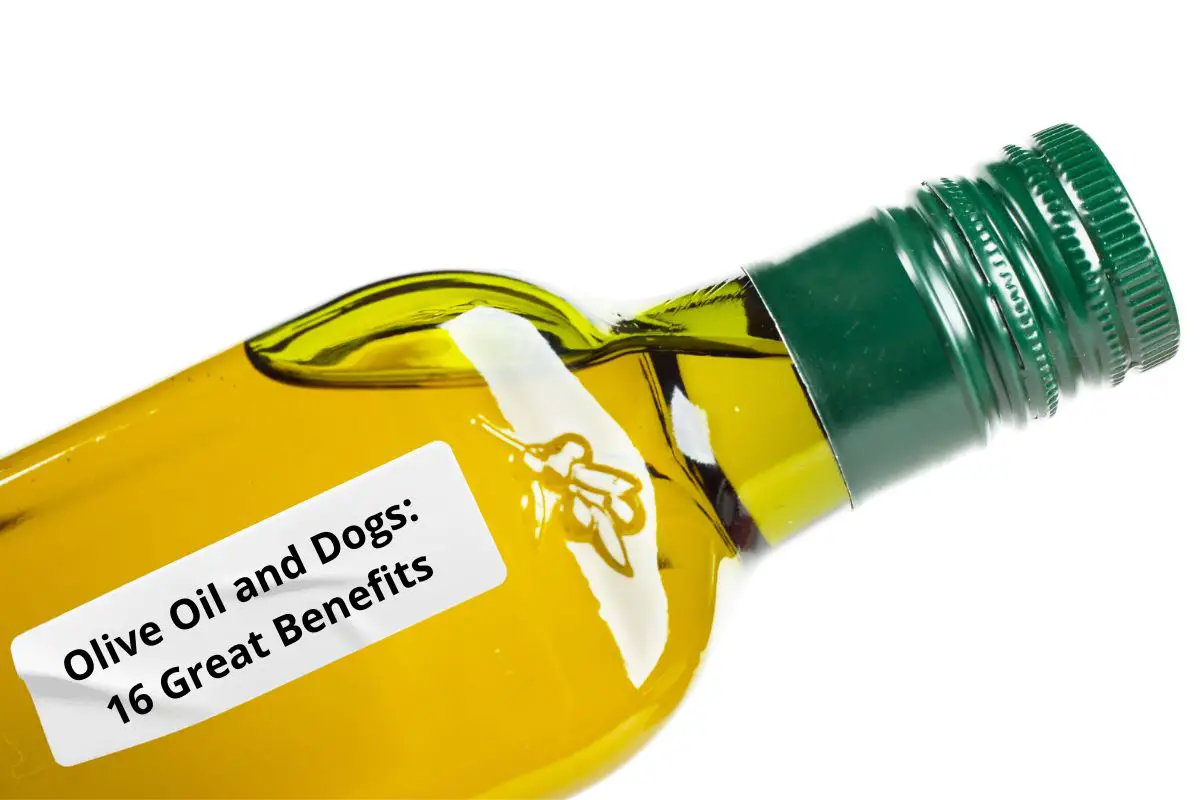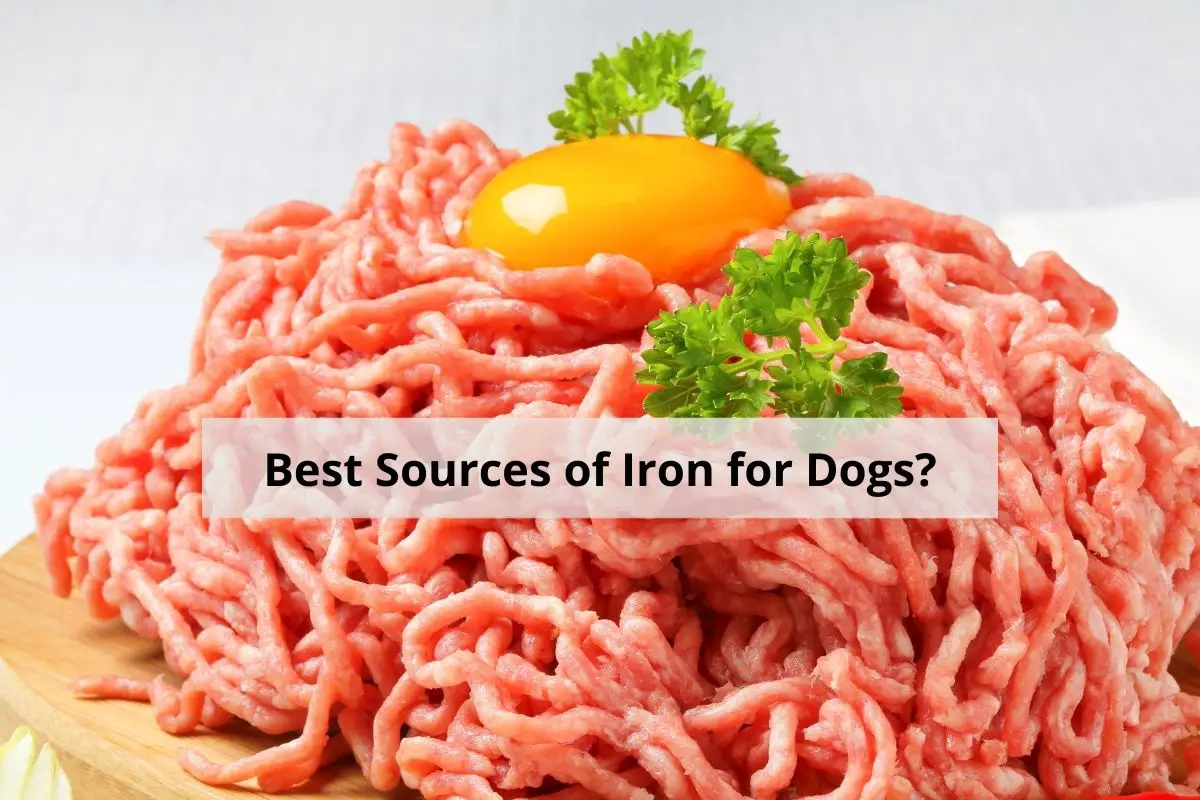This post contains affiliate links.
When your dog struggles to do his business, it can be distressing for both you and your dog. Constipation can be a sign of more severe illness, but usually, it just means your dog ate something he shouldn’t have.
The primary foods that can constipate dogs are foods that are low in fiber and water. Low-quality kibble, excess bones, and fruit and vegetable peels can all cause constipation in dogs. However, non-food items that your dog eats can cause much more severe constipation, like gravel or garbage.
Finding the right balance of nutrients for your dog can help you avoid constipation. Plenty of water and exercise will help, too. Read on to find out what foods to avoid and which ones to give your pet more of to prevent constipation.
Table of Contents
The Basics of Dog Constipation
Like people and other mammals, dogs get constipated when their stool’s consistency is too hard to pass. This happens when the stool is too dry and firm to move through the dog’s colon easily. Usually, when a dog is constipated, he will pass stool less frequently than usual or not at all.
Another way to tell if your dog is constipated is if he is straining to go when he does his business or if he doesn’t show interest in going at all. Blood or mucus in the stool can also be a sign that the dog is having trouble with digestion and defecation.
Inappropriate foods aren’t the only cause of constipation for dogs. Several medical conditions can lead to constipation, such as renal disease, prostate problems, pelvic trauma, and issues with the anal glands.
Constipation is more common in older dogs than younger ones. When an older dog is constipated, it could be a sign of one of these other health problems. If constipation persists when your dog isn’t eating any of these constipation-causing foods, you should take him to the vet for a full check-up.
While constipation can be a symptom of a more significant health issue, the culprit is more than likely an issue with the dog’s diet. A lack of fiber and water will lead to hard stool and bowel obstructions. The following foods are likely culprits if your dog is experiencing constipation.
Low-Fiber Dry Food
Commercial dog foods are specifically formulated to give your dog all of the nutrients he needs to be healthy and happy. There are dozens of brands and recipes for specific types of dogs and specific nutritional goals, so it can be tricky to pick the right brand and recipe for your pup.
Some lower-quality dog foods are low in fiber, making it harder for your dog to digest them. Fiber is most commonly found in vegetables, whole grains, and legumes such as beans.
There are two types of fiber, soluble and insoluble, and both kinds of fiber are important for digestion. They encourage the intestines to retain water and move food through the body, whether that body is human or canine. Soluble fiber does dissolve when eaten, whereas insoluble fiber remains intact as it moves through the digestive tract.
When you’re feeding your dog dry kibble, make sure to read the ingredient list. Avoid foods that rely heavily on corn or cornmeal — cheaper dog kibble can use corn and cornmeal as a filler. That’s because corn is low in fiber and difficult for dogs to digest, so stick to brands where the top ingredients are meat and whole grains.
Corn
Since corn in kibble is bad, it should be obvious that you should avoid feeding your dog fresh corn as well. While there is a small amount of fiber in corn, it isn’t enough to help dogs digest it. In other words, corn offers almost no nutritional value for dogs.
A little corn won’t harm your dog, but it won’t help him either. The highest risk for constipation is if your dog eats the corn’s cob or the husk. These parts of the plant are tough and inedible, and they will not easily break down in your dog’s system. It’s best to avoid feeding your dog corn entirely.
Bananas
Bananas are a food that can be a wonderful treat for your dog in moderation. However, if your dog has too much banana or eats any of the peel, it can result in mild constipation. That’s because the peel cannot be easily digested and can block your dog’s digestive tract and cause constipation.
The fruit of a banana is actually a very high-fiber treat. In moderation, it can help a dog’s digestive system rather than harm it. If your dog loves bananas, mashing the banana before you feed it to your dog can help make sure it gets digested properly.
Bones
One of the most common problem foods for dogs is bones since they frequently cause constipation by obstructing the dog’s digestive tract. When a piece of bone prevents stool from moving, the dog’s intestines will slowly pull more and more water out of the stool until it is too hard. Even after your dog passes the bone, he may have trouble defecating.
There are nutritional benefits to giving your dogs bones to eat. Particularly if you’re feeding your dog a raw-food or all-natural diet, bones are a good calcium and phosphorus source. Often, commercial dog food will include bone meals specifically for these nutrients.
The danger with bones is that they don’t soften in the dog’s stomach once they’re eaten. If the dog doesn’t chew the bone very well, large pieces can easily create intestinal blockages and painful constipation.
Raw bones are better than cooked, as cooked bones break very easily and become sharp. These sharp pieces can not only create blockages but also pierce and damage your dog’s internal organs. The best way to give your dog a bone is to give them a large raw bone with the meat still attached; that way, they are less likely to eat the bone itself.
Raw Food
Making food for your dog at home out of natural, whole ingredients can be a great way to make sure your dog is only eating foods that are good for him. However, without the guidance of a vet, it can be very easy to skimp on fiber.
Dogs are primarily meat-eaters, and so it might seem logical to feed them mostly meat. But without the addition of vegetables, they’ll miss out on some key nutrients. Fiber is the most important one, and it is not found in meat.

Knowing which vegetables are safe and which ones are dangerous for dogs to eat is important, and so is knowing how to prepare the foods that are safe for dogs. Always remove peels and seeds from fruits and vegetables before giving them to your dog because these parts are nearly impossible to digest. Many fruit seeds also contain small amounts of cyanide, which can make your dog very sick.
Common Non-Food Constipation Culprits
Dogs love to explore the world via their noses and mouths, which often leads to them eating things that aren’t edible. Anything your dog can’t digest has the potential to cause constipation. Plastic, gravel, and garbage are common causes of constipation in dogs.
Some dogs also get constipated from consuming too much of their own hair. Dogs who groom themselves too frequently can accidentally eat large amounts of their fur. The fur collects in their digestive tract and makes the stool more rigid and difficult to pass.
Canine Constipation Cures
A little constipation is not going to harm your dog in the long-term. But it can be painful. If your dog is experiencing constipation, you should try to resolve it as soon as possible.
Over time, if a dog can’t defecate, the stool in his intestines will continue to harden and dry out as the dog’s organs remove more of the water. This can eventually lead to obstipation, which is a severe form of constipation that needs medical intervention to resolve.
Foods To Try
Avoid giving your dog laxatives or over-the-counter medications to treat constipation. These can lead to diarrhea or other stomach problems. Most cases of simple constipation can be resolved with water, fiber, and exercise.
Pumpkin is a good source of fiber and is a proven treatment for constipation symptoms in dogs, meaning regularly giving your dog pumpkin can also prevent future constipation. Pureed pumpkin is an easy way to get more moisture and fiber into your dog’s diet. It works well as the base for a vegetable mixture or as a supplement to dry kibble.
Flaxseed oil is another good treatment and prevention for constipation. Adding a little oil to your dog’s food can help lubricate dry stool and get digestion moving again. Not all oils are suitable for dogs, so check with your vet before giving your dog oil.
Other Cures
The two most reliable cures for constipation are the easiest: more water and more exercise. Making sure your dog has access to plenty of water is important. If your dog is reluctant to drink, you can try adding ice cubes to his water or mixing a little water in with his food. Canned dog foods can also give your dog extra hydration.
Plenty of exercise can help keep your dog’s digestive tract moving. That’s because the movement of the other organs around the intestines can help break up the tough stool and push it towards the exit. Exercise might also make your dog thirsty and encourage him to drink more water.
Conclusion
Avoiding non-edible material and low-fiber foods is an excellent way to help your pet avoid constipation. While constipation isn’t necessarily dangerous, it can be uncomfortable and can lead to future medical headaches.
Water, fiber, and exercise can cure the occasional bout of constipation. Chronic constipation or constipation that occurs when your dog is eating a proper diet might cause concern, so you should see a vet if constipation persists.
Related Articles
- Can Dry Dog Food Cause Constipation? We Asked Experts
- Does Canned Dog Food Cause Loose Stools? The Truth Revealed
Sources
- Dog Days of Birmingham: Top Worst Dog Foods
- PetMD: The Nutritional Aspects of Bone Composition
- Harvard Health Publishing: Surprising Sources of Dietary Fiber
- American Kennel Club: Cooking for Your Dog: Do’s and Don’ts
- American Kennel Club: Fresh vs. Raw vs. Kibble
- American Kennel Club: Can Dogs Eat Bananas?
- American Kennel Club: Dog Constipation: Diagnosis, Causes, and Treatment
- WebMD: Dog Constipation Causes and Treatment
- Poop Bags: Is Your Dog Constipated?
- PetHelpful: Easy Constipation Relief
Mrdogfood.com is a participant in the Amazon Services LLC Associates Program, an affiliate advertising program designed to provide a means for sites to earn advertising fees by advertising and linking to Amazon.com. We also participate in other affiliate programs which compensate us for referring traffic.




